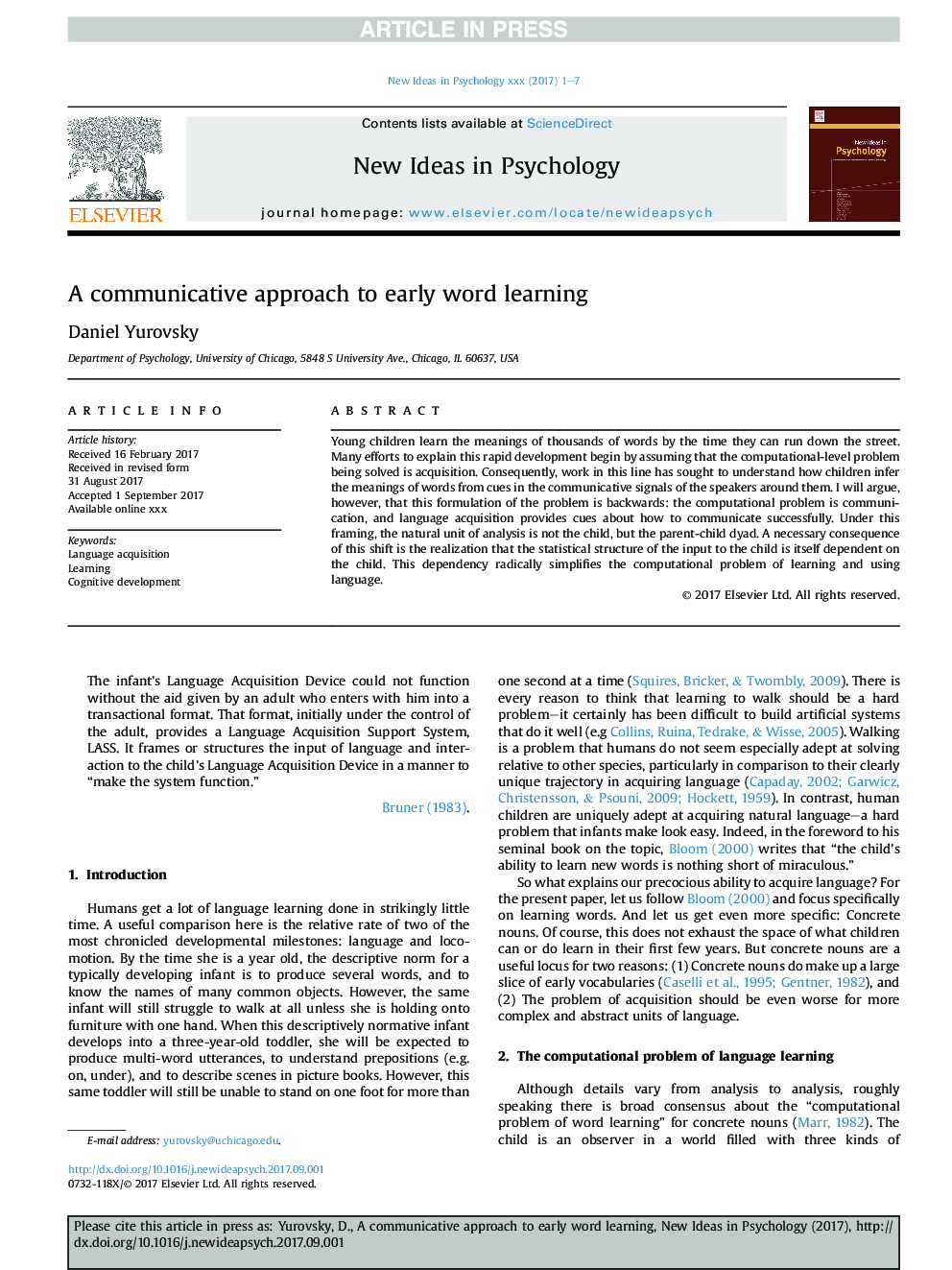| کد مقاله | کد نشریه | سال انتشار | مقاله انگلیسی | نسخه تمام متن |
|---|---|---|---|---|
| 6810997 | 1433737 | 2018 | 7 صفحه PDF | دانلود رایگان |
عنوان انگلیسی مقاله ISI
A communicative approach to early word learning
ترجمه فارسی عنوان
رویکرد ارتباطی به یادگیری زبانی اولیه
دانلود مقاله + سفارش ترجمه
دانلود مقاله ISI انگلیسی
رایگان برای ایرانیان
کلمات کلیدی
بدست آوردن مهارت زبانی، یادگیری، توسعه شناختی،
ترجمه چکیده
بچه های جوان، زمانی که می توانند خیابان را اجرا کنند، معانی هزاران کلمه را یاد می گیرند. بسیاری از تلاش ها برای توضیح این توسعه سریع با فرض اینکه مساله حل محاسبات حل شده، کسب است، آغاز می شود. در نتیجه، کار در این خط تلاش شده است تا بدانند چگونه کودکان معانی کلمات را از نشانه ها در سیگنالهای ارتباطی سخنرانان اطرافشان به دست می آورند. با این حال، من استدلال می کنم که این فرمول مشکلی عقب است: مشکل محاسباتی ارتباطات است، و دریافت زبان نشانه ای در مورد نحوه برقراری ارتباط با موفقیت است. تحت این فریم، واحد طبیعی تجزیه و تحلیل کودک نیست، بلکه پدر و مادر دیاد. نتیجه ضروری این تغییر، این است که ساختار آماری ورودی به کودک خود به فرزند بستگی دارد. این وابستگی به طور اساسی، مسئله محاسباتی یادگیری و استفاده از زبان را ساده کرده است.
موضوعات مرتبط
علوم انسانی و اجتماعی
روانشناسی
روانشناسی رشد و آموزشی
چکیده انگلیسی
Young children learn the meanings of thousands of words by the time they can run down the street. Many efforts to explain this rapid development begin by assuming that the computational-level problem being solved is acquisition. Consequently, work in this line has sought to understand how children infer the meanings of words from cues in the communicative signals of the speakers around them. I will argue, however, that this formulation of the problem is backwards: the computational problem is communication, and language acquisition provides cues about how to communicate successfully. Under this framing, the natural unit of analysis is not the child, but the parent-child dyad. A necessary consequence of this shift is the realization that the statistical structure of the input to the child is itself dependent on the child. This dependency radically simplifies the computational problem of learning and using language.
ناشر
Database: Elsevier - ScienceDirect (ساینس دایرکت)
Journal: New Ideas in Psychology - Volume 50, August 2018, Pages 73-79
Journal: New Ideas in Psychology - Volume 50, August 2018, Pages 73-79
نویسندگان
Daniel Yurovsky,
